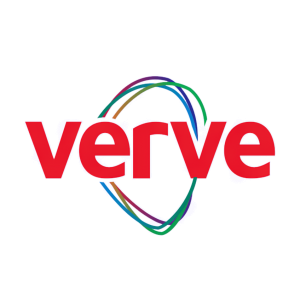Verve Therapeutics Announces Pipeline Progress and Reports First Quarter 2025 Financial Results
Rhea-AI Summary
Positive
- Strong efficacy data from VERVE-102 trial with 53% mean LDL-C reduction and 69% maximum reduction
- FDA Fast Track designation received for VERVE-102
- Robust cash position of $497.1 million with runway into mid-2027
- Collaboration revenue increased significantly to $33.0 million from $5.7 million YoY
- Favorable safety profile in VERVE-102 trials with no serious adverse events
Negative
- Net loss of $31.0 million in Q1 2025
- Increased R&D expenses to $54.5 million from $48.4 million YoY
- Vertex Pharmaceuticals terminated their research collaboration
News Market Reaction
On the day this news was published, VERV gained 3.61%, reflecting a moderate positive market reaction.
Data tracked by StockTitan Argus on the day of publication.
Reported positive initial data from the Heart-2 Phase 1b clinical trial of VERVE-102 demonstrating dose-dependent decreases in blood LDL-C and PCSK9
Mean reduction in LDL-C of
Pulse-1 Phase 1b clinical trial of VERVE-201 targeting ANGPTL3 continues to progress with a program update expected in the second half of 2025
Cash, cash equivalents, and marketable securities of approximately
BOSTON , May 14, 2025 (GLOBE NEWSWIRE) -- Verve Therapeutics, a clinical-stage company developing a new class of genetic medicines for cardiovascular disease, today reported pipeline updates and financial results for the first quarter ended March 31, 2025.
“2025 is off to a strong start with both clinical and regulatory progress. Last month, we reported exciting initial data from the Heart-2 clinical trial, which demonstrated that a single infusion of VERVE-102, a base editing medicine targeting PCSK9, was well-tolerated and led to compelling, dose-dependent reductions in LDL-C. These data, along with ongoing durability data of up to two years from our Heart-1 clinical trial, suggest a product profile that could fundamentally transform the journey for patients living with cardiovascular disease from decades of chronic care to a one dose future,” said Sekar Kathiresan, M.D., co-founder and chief executive officer of Verve Therapeutics. “As today’s LDL-C lowering options lead to transient reduction, frequent discontinuation, and thereby, inadequate efficacy, we believe VERVE-102 can become a highly competitive option compared to existing therapies for cardiovascular disease.”
“With cash runway into mid-2027, we are well-positioned to achieve our goals. We expect to dose the first patient in the Phase 2 clinical trial of VERVE-102 in the second half of 2025,” Dr. Kathiresan continued. “In addition, we look forward to providing further updates in the second half of 2025, including final data from the dose escalation portion of the Heart-2 trial, delivery of the opt-in package, and a decision from Eli Lilly on the PCSK9 program, as well as a program update for VERVE-201 targeting ANGPTL3.”
PCSK9 Program
Positive Initial Data from Ongoing Heart-2 Phase 1b Clinical Trial of VERVE-102
- VERVE-102 is a novel, in vivo, investigational base editing medicine designed to be a single course treatment that permanently turns off the PCSK9 gene in the liver and durably reduces disease-driving low-density lipoprotein cholesterol (LDL-C). VERVE-102 uses Verve’s proprietary GalNAc lipid nanoparticle (LNP) delivery technology, which has demonstrated a potentially best-in-class safety profile and is designed to allow the LNP to access liver cells using either the low-density lipoprotein receptor (LDLR) or the asialoglycoprotein receptor (ASGPR).
- VERVE-102 is being evaluated in the Heart-2 open-label Phase 1b clinical trial in two patient populations who require deep and durable reductions of LDL-C levels in the blood: adults living with heterozygous familial hypercholesterolemia (HeFH) and/or adults living with premature coronary artery disease (CAD). To date, the Heart-2 clinical trial has dosed patients in four weight-based dose cohorts, with each cohort expected to be comprised of three to nine participants.
- In April 2025, Verve presented initial data from the Heart-2 clinical trial with a data cutoff date of March 13, 2025 from 14 participants across the first three cohorts (weight-based cohorts of 0.3 mg/kg, 0.45 mg/kg, and 0.6 mg/kg) with at least 28 days of follow-up for each participant. A single infusion of VERVE-102 demonstrated:
- A favorable safety profile, with no treatment-related serious adverse events, no clinically significant laboratory abnormalities, and no cardiovascular events observed. Across all 14 participants, there was one infusion related reaction (Grade 2) which involved transient symptoms that resolved with acetaminophen.
- Dose-dependent decreases in blood LDL-C and PCSK9 protein levels, with mean reductions in blood LDL-C of
53% and PCSK9 protein of60% in four participants in the 0.6 mg/kg dose cohort. The maximum reduction in blood LDL-C was69% in a single participant in the 0.6 mg/kg dose cohort. Blood LDL-C and PCSK9 protein reductions are quantified as percent change from baseline using the time-average from day 28 through last available follow-up.
- Verve also evaluated the pharmacodynamic (PD) data across all 14 participants from the Heart-2 clinical trial of VERVE-102 by total RNA dose in milligrams, which is emerging as a key driver of PD for LNP-delivered in vivo gene editing medicines.
- Three of the 14 participants received a total RNA dose between 50 and 60 mg, with an average dose received of 55 mg. In this group, VERVE-102 demonstrated time-averaged mean reductions in blood LDL-C of
59% and PCSK9 protein of65% . Each of the three participants who received a dose ≥ 50 mg achieved a >50% time-averaged reduction of LDL-C from baseline.
- Three of the 14 participants received a total RNA dose between 50 and 60 mg, with an average dose received of 55 mg. In this group, VERVE-102 demonstrated time-averaged mean reductions in blood LDL-C of
- The Heart-2 clinical trial is enrolling participants in the fourth dose cohort of 0.7 mg/kg in the United Kingdom, Canada, Israel, Australia, and New Zealand.
- In March 2025, Verve announced the clearance by the U.S. Food and Drug Administration (FDA) of the investigational new drug (IND) application for VERVE-102.
- In April 2025, Verve announced the receipt of Fast Track designation for VERVE-102 for the treatment of patient groups with hyperlipidemia and high lifetime cardiovascular risk to reduce LDL-C from the FDA. Fast Track designation is designed to facilitate the development and expedite the review of drugs that are intended to treat serious or life-threatening conditions and demonstrate the potential to address an unmet medical need.
- Verve expects to announce the final data from the dose escalation portion of the Heart-2 clinical trial, deliver the opt-in package for the PCSK9 program to Eli Lilly and Company (Lilly), and receive a decision from Lilly in the second half of 2025.
- Subject to regulatory clearance, Verve plans to dose the first patient in the Phase 2 clinical trial of VERVE-102 in the second half of 2025.
ANGPTL3 Program
Pulse-1 Phase 1b Clinical Trial for VERVE-201 Continues to Progress
- VERVE-201 is a novel, in vivo, investigational base editing medicine designed to be a single course treatment that permanently turns off the ANGPTL3 gene in the liver to reduce disease-driving LDL-C as well as triglycerides and utilizes Verve’s proprietary GalNAc-LNP delivery technology.
- VERVE-201 is being developed in two patient populations: patients with refractory hypercholesterolemia (RH), defined as those who are unable to achieve adequate LDL-C reduction with maximally tolerated standard of care therapies, potentially including PCSK9 inhibitors, and patients living with homozygous familial hypercholesterolemia (HoFH), a rare and often fatal inherited cause of premature atherosclerotic cardiovascular disease (ASCVD) characterized by extremely high blood LDL-C. The aim of this medicine is to reduce the heavy treatment burden associated with available therapies, including the requirement for multiple oral, injectable, and intravenous infusions, often administered over decades.
- VERVE-201 is currently being evaluated in the ongoing Pulse-1 open-label Phase 1b clinical trial, which is designed to evaluate the safety and tolerability of VERVE-201 in adult patients with RH. Endpoints also include pharmacokinetics and changes in blood ANGPTL3 protein and LDL-C levels.
- Verve remains on track to provide a program update on VERVE-201 in the second half of 2025.
LPA Program
Development for VERVE-301 Ongoing
- VERVE-301 is a novel, in vivo, investigational gene editing medicine designed to be a single course treatment that permanently turns off the LPA gene in the liver to reduce blood lipoprotein (a) [Lp(a)] levels and utilizes Verve’s proprietary GalNAc-LNP delivery technology and a novel gene editor. Verve has an exclusive research collaboration with Lilly to advance this program to lower Lp(a) for the treatment of ASCVD.
- Lp(a) is a genetically validated, independent risk factor for ASCVD, ischemic stroke, thrombosis, and aortic stenosis. This increased risk is most pronounced in individuals with very high Lp(a) concentrations (e.g., ≥ 125 nmol/L). An estimated 1.4 billion people worldwide have an Lp(a) concentration above this threshold. Lp(a) concentrations are determined at birth. Unfortunately, lifestyle changes - such as diet and exercise - as well as currently approved lipid-lowering therapies have minimal to no impact on reducing Lp(a) levels.
- Verve received a milestone payment from Lilly in the first quarter of 2025 in conjunction with the nomination of VERVE-301 as the development candidate. Preclinical studies for VERVE-301 continue to advance.
Upcoming Investor Events
Verve plans to participate in a fireside chat during the following investor event:
- RBC Capital Markets Global Healthcare Conference, May 21 at 3:35 p.m. EDT, New York, NY
Recent and Upcoming Medical Meeting Presentations
European Atherosclerosis Society 93rd Congress
Title: Nonclinical data demonstrate potent and precise inactivation of liver PCSK9 in vivo with the clinical stage GalNAc base editing medicine, VERVE-102
Session: Workshop – New targets for therapy
Date: May 5 at 4:55 p.m. BST
TIDES USA 2025: Oligonucleotide & Peptide Therapeutics
Title: Single-course gene editing to durably lower harmful cholesterol
Session: Genome editing technology and applications
Date: May 22 at 4:30 p.m. PDT
First Quarter 2025 Financial Results
Cash Position: Cash, cash equivalents, and marketable securities were
Collaboration Revenue: Collaboration revenue was
Research & Development (R&D) Expenses: R&D expenses were
General & Administrative (G&A) Expenses: G&A expenses were
Net Loss: Net loss was
About Verve Therapeutics
Verve Therapeutics, Inc. (Nasdaq: VERV) is a clinical-stage company developing a new class of genetic medicines for cardiovascular disease with the potential to transform treatment from chronic therapies to single-course gene editing medicines. The company’s lead programs – VERVE-102, VERVE-201, and VERVE-301 – target the three lipoprotein drivers of atherosclerosis: LDL-C, triglycerides, and Lp(a). VERVE-102 is designed to permanently turn off the PCSK9 gene in the liver and is being developed initially for heterozygous familial hypercholesterolemia (HeFH) and ultimately to treat patients with established atherosclerotic cardiovascular disease (ASCVD) who continue to be impacted by high LDL-C levels. VERVE- 201 is designed to permanently turn off the ANGPTL3 gene in the liver and is initially being developed for refractory hypercholesterolemia, where patients still have high LDL-C despite treatment with maximally tolerated standard of care therapies, and homozygous familial hypercholesterolemia (HoFH). VERVE-301 is designed to permanently turn off the LPA gene to reduce Lp(a) levels. Lp(a) is a genetically validated, independent risk factor for ASCVD, ischemic stroke, thrombosis, and aortic stenosis. For more information, please visit www.VerveTx.com.
Cautionary Note Regarding Forward Looking Statements
This press release contains “forward-looking statements” within the meaning of the Private Securities Litigation Reform Act of 1995 that involve substantial risks and uncertainties, including statements regarding the company’s ongoing Heart-2 clinical trial and Pulse-1 clinical trial; the timing and availability of data for the Heart-2 trial and timing for initiation of the Phase 2 clinical trial for VERVE-102; the timing for delivery of the opt-in package and of Lilly’s decision for the PCSK9 program; the timing of an update for the ANGPTL3 program; the company’s research and development programs; the potential advantages and therapeutic potential of the company’s programs; and the period over which the company believes that its cash, cash equivalents and marketable securities will be sufficient to fund its operating expenses. All statements, other than statements of historical facts, contained in this press release, including statements regarding the company’s strategy, future operations, future financial position, prospects, plans and objectives of management, are forward-looking statements. The words “anticipate,” “believe,” “continue,” “could,” “estimate,” “expect,” “intend,” “may,” “plan,” “potential,” “predict,” “project,” “should,” “target,” “will,” “would” and similar expressions are intended to identify forward-looking statements, although not all forward-looking statements contain these identifying words. Any forward-looking statements are based on management’s current expectations of future events and are subject to a number of risks and uncertainties that could cause actual results to differ materially and adversely from those set forth in, or implied by, such forward-looking statements. These risks and uncertainties include, but are not limited to, risks associated with the company’s limited operating history; the company’s ability to timely submit and receive approvals of regulatory applications for its product candidates; advance its product candidates in clinical trials; initiate, enroll and complete its ongoing and future clinical trials on the timeline expected or at all; correctly estimate the potential patient population and/or market for the company’s product candidates; replicate in clinical trials positive results found in preclinical studies and/or earlier-stage clinical trials of VERVE-101, VERVE-102, and VERVE-201; advance the development of its product candidates under the timelines it anticipates in current and future clinical trials; obtain, maintain or protect intellectual property rights related to its product candidates; manage expenses; and raise the substantial additional capital needed to achieve its business objectives. For a discussion of other risks and uncertainties, and other important factors, any of which could cause the company’s actual results to differ from those contained in the forward-looking statements, see the “Risk Factors” section, as well as discussions of potential risks, uncertainties and other important factors, in the company’s most recent filings with the Securities and Exchange Commission and in other filings that the company makes with the Securities and Exchange Commission in the future. In addition, the forward-looking statements included in this press release represent the company’s views as of the date hereof and should not be relied upon as representing the company’s views as of any date subsequent to the date hereof. The company anticipates that subsequent events and developments will cause the company’s views to change. However, while the company may elect to update these forward-looking statements at some point in the future, the company specifically disclaims any obligation to do so.
Investor Contact
Jen Robinson
Verve Therapeutics, Inc.
jrobinson@vervetx.com
Media Contact
Ashlea Kosikowski
1AB
ashlea@1abmedia.com
| Verve Therapeutics, Inc. | ||||||||
| Select Condensed Consolidated Financial Information | ||||||||
| (in thousands, except share and per share amounts) | ||||||||
| (unaudited) | ||||||||
| Three months ended March 31, | ||||||||
| Condensed consolidated statements of operations | 2025 | 2024 | ||||||
| Collaboration revenue | $ | 32,976 | $ | 5,695 | ||||
| Operating expenses: | ||||||||
| Research and development | 54,458 | 48,376 | ||||||
| General and administrative | 15,154 | 14,163 | ||||||
| Total operating expenses | 69,612 | 62,539 | ||||||
| Loss from operations | (36,636 | ) | (56,844 | ) | ||||
| Other income: | ||||||||
| Change in fair value of success payment liability | 223 | 78 | ||||||
| Interest and other income, net | 5,459 | 8,136 | ||||||
| Total other income, net | 5,682 | 8,214 | ||||||
| Loss before provision for income taxes | (30,954 | ) | (48,630 | ) | ||||
| Provision for income taxes | (79 | ) | (106 | ) | ||||
| Net loss | $ | (31,033 | ) | $ | (48,736 | ) | ||
| Net loss per share, basic and diluted | $ | (0.35 | ) | $ | (0.59 | ) | ||
| Weighted-average common shares used in net loss per share, basic and diluted | 88,795,827 | 83,132,960 | ||||||
| Condensed consolidated balance sheet data | March 31, 2025 | December 31, 2024 | ||||
| Cash, cash equivalents and marketable securities | $ | 497,077 | $ | 524,281 | ||
| Total assets | $ | 614,163 | $ | 647,392 | ||
| Total liabilities | $ | 140,650 | $ | 153,992 | ||
| Total stockholders' equity | $ | 473,513 | $ | 493,400 | ||








